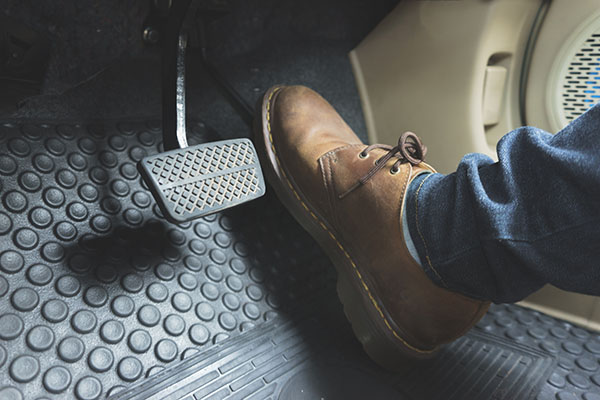
The reassuring firmness of your brake pedal is a sensation that instills confidence and safety as you navigate the roads. However, what do you do when that confidence is compromised by a sudden change in how your brake pedal feels? If you've noticed your brake pedal feels unusually soft or mushy, it's not a sensation to be ignored. After all, who want's to drive without brakes?
Understanding the Brake System
Before we explore the causes of a soft brake pedal, it's essential to grasp the basics of your vehicle's braking system. When you press the brake pedal, you're initiating a hydraulic system that transmits your force to the brake calipers or drums, ultimately slowing down or stopping your vehicle. The sensation of a firm brake pedal comes from the efficient transfer of this force. However, when that firmness is compromised, it's a sign that something might be amiss.
Air in the Brake Lines
One of the most prevalent causes of a soft brake pedal is the presence of air bubbles in the brake lines. Air can enter the system through a leak or when the brake fluid is low, leading to reduced hydraulic pressure and a spongy pedal feel.
Brake Fluid Leak
Brake fluid is the lifeblood of your braking system, and any leak can disrupt its hydraulic properties. Whether it's a worn-out brake line, a faulty caliper seal, or a deteriorated master cylinder, a leak can cause a loss of pressure and result in a soft pedal.
Worn Brake Components
Over time, brake pads and shoes wear down, reducing their ability to create adequate friction. When these components are excessively worn, they might not make proper contact with the rotors or drums, leading to a soft pedal.
Brake System Contamination
Contaminants in the brake fluid, such as moisture or debris, can affect the fluid's performance and lead to a soft brake pedal. Brake fluid should ideally be clear and free of impurities for optimal braking efficiency.
What Can I Do To Address This Issue?
If you notice a soft brake pedal, it's vital not to overlook the matter. Your safety and the safety of others on the road depend on reliable braking performance. Here's what you can do:
- Check Brake Fluid Level: Ensure your brake fluid reservoir is at the recommended level. Low fluid can contribute to a soft pedal.
- Inspect for Leaks: Check under your vehicle for signs of brake fluid leaks. If you find any, it's crucial to have the issue diagnosed and repaired promptly.
- Bleed the Brake System: If air is suspected to be the cause, bleeding the brake system to remove air bubbles might restore pedal firmness. It's recommended to have this done by a professional mechanic.
- Examine Brake Components: Have your brake pads, shoes, rotors, and drums inspected for wear. Worn components should be replaced to ensure proper braking.
Brake system issues? Hyland Auto Repair is here to assist you! It's as simple as giving us a call, booking an appointment, and leaving the rest to us.